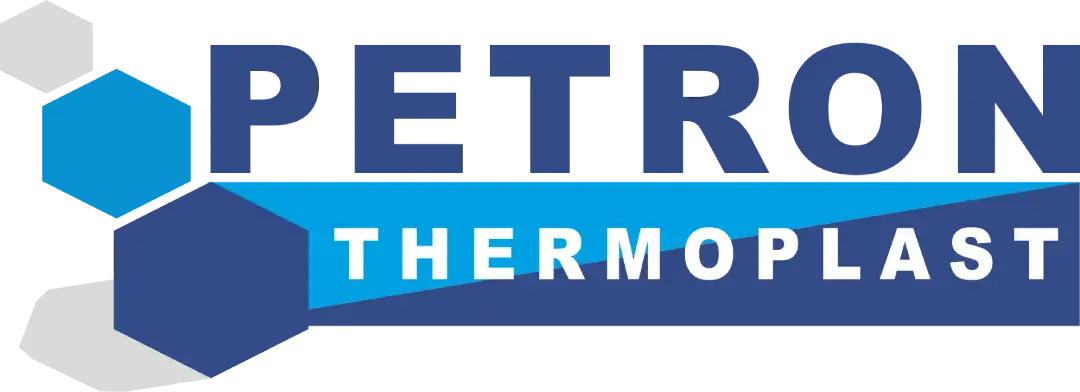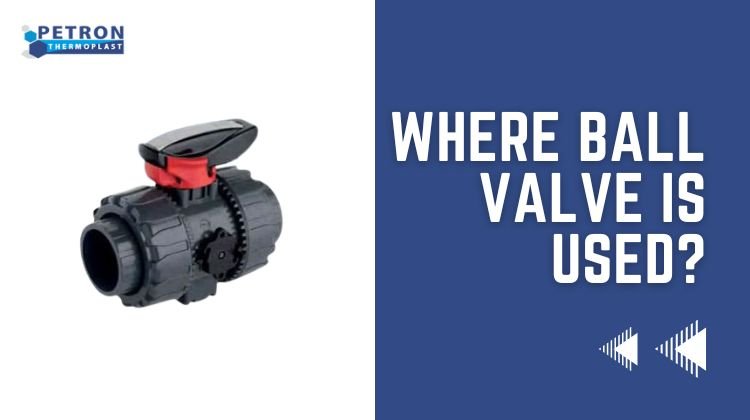Introduction
Ball Valve Is Used: When it comes to controlling the flow of fluids in a piping system, ball valves play a crucial role. With their simple yet effective design, ball valves offer reliable shut-off and regulation capabilities. In this article, we will explore the various applications of ball valves and shed light on their significance in different industries. Additionally, we will discuss the specific uses of the PVC ball valve, a popular variant of ball valves widely employed in various systems.
Understanding Ball Valves
Before delving into their applications, let’s grasp the basics of ball valves. A ball valve consists of a spherical disc with a hole in its center, known as the bore. By rotating the lever or handle connected to the valve, the bore can be aligned with the flow path to allow fluid passage or closed off to stop the flow entirely. This simple yet effective mechanism makes ball valves highly versatile and suitable for a wide range of applications.
Industrial Applications
Here are Ball Valve Is Used given below for Industrial Applications:
Oil and Gas Industry
The oil and gas industry relies heavily on ball valves due to their robust construction and ability to handle high-pressure and high-temperature conditions. These valves are commonly used in pipelines, refineries, offshore platforms, and storage facilities. Their durability, ease of maintenance, and quick shutoff make them ideal for critical applications within this industry.
Water and Wastewater Treatment
Ball valves find extensive use in water and wastewater treatment plants. They are employed for controlling the flow of water, chemicals, and other fluids throughout the treatment process. PVC ball valves, in particular, are highly favored for their resistance to corrosion and chemical deterioration, making them suitable for use in aggressive environments.
HVAC Systems
Heating, ventilation, and air conditioning (HVAC) systems require precise control over the flow of air, water, and refrigerants. Ball valves are commonly utilized in these systems to regulate fluid flow and isolate different zones. The compact size, ease of installation, and reliable operation of ball valves make them a preferred choice in the HVAC industry.
Chemical and Pharmaceutical Industries
In chemical and pharmaceutical plants, the handling of various corrosive and hazardous substances demands robust and chemically resistant valves. Ball valves, including PVC variants, are widely employed to control the flow of chemicals, acids, solvents, and other fluids. Their ability to withstand aggressive environments and provide leak-free operation is crucial in maintaining a safe and efficient production process.
Residential and Commercial Applications
Here are Ball Valve Is Used given below for Residential and Commercial Applications:
Plumbing Systems
Ball valves play a vital role in residential and commercial plumbing systems. They are used for controlling the flow of water through pipes, faucets, toilets, and appliances. PVC ball valves, in particular, are popular in these applications due to their affordability, ease of installation, and resistance to corrosion.
Irrigation Systems
In agricultural and landscaping applications, irrigation systems rely on ball valves for regulating the flow of water. Ball valves offer excellent shut-off capabilities, ensuring precise control over the water supply. Their durability and resistance to clogging make them an ideal choice for outdoor environments.
Swimming Pools and Spa Systems
Ball valves are commonly found in swimming pools and spa systems, where they help control the flow of water to different features and components. Whether it’s adjusting water circulation or diverting water to various jets or drains, ball valves provide efficient flow control, ensuring a pleasant and hygienic experience.
Ball Valve Types
Ball valves come in various types, each designed to meet specific application requirements. Here are some common types of ball valves:
- Floating Ball Valve: In a floating ball valve, the ball is held in place by two floating seats. The ball is free to move, allowing it to seal against the seats when the valve is closed, ensuring a tight shut-off. This type of ball valve is suitable for low to moderate-pressure applications.
- Trunnion Ball Valve: Trunnion ball valves have a fixed ball supported by trunnion bearings or trunnion blocks. The trunnions help support the weight of the ball, making it suitable for high-pressure and large-diameter applications. Trunnion ball valves offer improved sealing and reduced operating torque compared to floating ball valves.
- V-Port Ball Valve: V-port ball valves have a V-shaped ball that creates a precise flow control by adjusting the position of the ball in relation to the flow path. The V-port design allows for better control over flow rates and is commonly used in applications where precise throttling is required, such as in control systems.
- Three-Way Ball Valve: Three-way ball valves have three ports, allowing the flow to be diverted between two different flow paths. This type of valve can be used to control the flow direction, mix fluids, or isolate one line while directing flow through another. Three-way ball valves are commonly used in applications where flow diversion or mixing is required.
- Multi-Port Ball Valve: Multi-port ball valves have more than three ports, typically with a T- or L-shaped configuration. These valves provide multiple flow paths and can be used to control the flow between multiple lines or direct flow to different outlets. Multi-port ball valves offer versatility and are commonly used in complex piping systems.
- Cavity-Filled Ball Valve: Cavity-filled ball valves have a cavity or cavity-fillers in the ball to prevent the accumulation of fluid in the cavity when the valve is in the closed position. This design helps reduce the risk of fluid contamination or solid buildup, making it suitable for applications where cleanliness is critical, such as in food and pharmaceutical industries.
- Cryogenic Ball Valve: Cryogenic ball valves are specifically designed to handle extremely low temperatures, typically below -50°C (-58°F). These valves are constructed with materials and components that can withstand the severe cold conditions and maintain proper sealing even at low temperatures. They are commonly used in industries such as LNG (liquefied natural gas) processing and storage.
Conclusion
Ball Valve Is Used: Ball valves are integral components in various industries and applications due to their versatility, durability, and reliable performance. Whether it’s in the oil and gas industry, water treatment plants, HVAC systems, or residential plumbing, these valves offer precise flow control and shutoff capabilities. Additionally, PVC ball valves are widely used for their chemical resistance and affordability. By understanding the applications and benefits of ball valves, engineers and end-users can make informed decisions regarding their implementation, ensuring efficient and safe fluid control in diverse systems.
You may also read – Gear Manufacturer | UHMW Plastic | PEEK Parts
Q. Where are ball valves found?
Ball valves are found in various applications, including plumbing systems, industrial processes, oil and gas pipelines, water treatment plants, and HVAC systems. They provide reliable control and shut-off functions by using a rotating ball with a hole in it to regulate fluid flow.
Q. Where is gate valve and ball valve used?
Gate valves are used in applications that require a full open or full closed position, such as water systems. Ball valves are used for on/off control in various industries, like oil and gas, where quick shutoff is needed.
Q. Can I use ball valve for water?
Yes, you can use a ball valve for water. Ball valves are commonly used in plumbing systems to control the flow of water. They provide a reliable shut-off and are suitable for both residential and commercial applications.
Q. What are the 2 types of ball valve?
The two types of ball valves are the floating ball valve and the trunnion ball valve. Floating ball valves have a freely moving ball, while trunnion ball valves have a fixed ball with a stem that supports and controls its movement.
Q. Why choose ball valve?
Ball valves are preferred for their reliable sealing, high flow capacity, and quick operation. They offer excellent shut-off capabilities, are durable, and suitable for various applications. With a simple design and low maintenance, ball valves provide efficient control of flow in industrial, commercial, and residential systems.





Pingback: altogel
Pingback: dk7
Pingback: online chat
Pingback: free webcam tokens
Pingback: kc9
Pingback: วงดนตรีงานเลี้ยง
Pingback: website
Pingback: Aviator